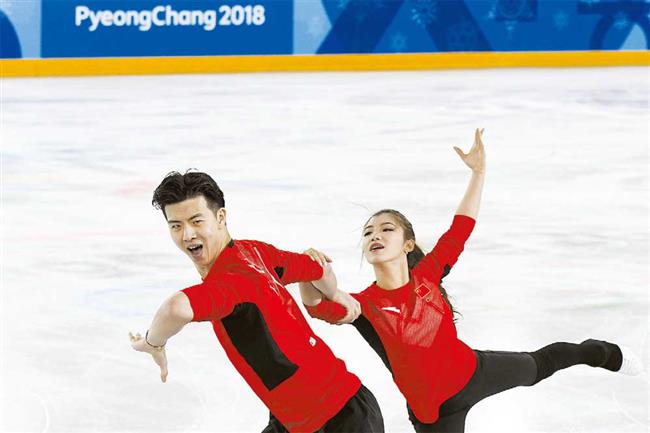Athletes, organizers locked in 'cold war'

China’s Wang Shiyue and Liu Xinyu practice for the team ice dance event at the Gangneung Ice Arena yesterday, ahead of the 2018 Pyeongchang Winter Olympic Games.
EVEN for cold weather warriors hardened by years of winter sports training, the icy chill of South Korea’s frigid February has come as a shock to the system in the leadup to the Pyeongchang Olympics.
Plunging to minus 20 degrees Celsius at night and rarely breaking above freezing in the day, the temperatures have put Pyeongchang on track to be the coldest Olympics in decades and present athletes with a very different set of conditions from the sunshine and slushy snow of Sochi four years ago.
The 1994 Winter Games in Lillehammer, Norway, where temperatures dipped to minus 11 Celsius, are currently the coldest Olympics on record but recent Games in Turin, Vancouver and Sochi have all been significantly warmer.
Sporting and digital equipment appears no match for the biting cold either, with skis warped to such an extent coaches are tossing them out like “garbage” while cellphone and TV camera batteries are being rendered lifeless fast.
Austrian Alpine skier Marcel Hirscher said athletes were using a different pair of skis on every run as the frigid temperatures sharpened snow crystals. “Snow crystals get really sharp when temperatures go to minus 20 degrees and the base burns,” he added.
“It’s the same as lighting a fire and burning your (ski) base because the snow crystals get such sharp edges.”
Health concerns, too, have risen to the fore.
Norway’s cross-country team has brought some of its training indoors to prevent cold air from damaging athletes’ airways while fears that an outbreak of norovirus, known as the ‘winter vomiting bug’, would sweep through the Games prompted organizers to keep infected security staff away from work.
But it is the threat of hypothermia at tomorrow’s opening ceremony that has set organizers on edge, with presidents, prime ministers and some 35,000 spectators scheduled to gather under the stars at Pyeongchang’s US$58-million open-air Olympic Stadium.
The ceremony has been slimmed down to a brisk two-hour march from the typical four-hour procession and organizers plan to dish out hats, blankets and seat-warmers to combat the cold.















